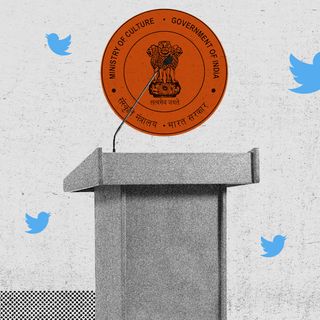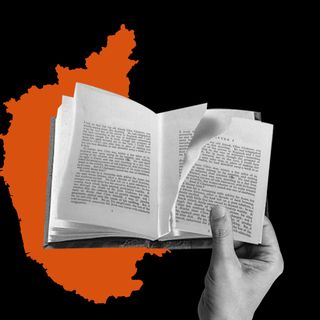This week, a Delhi court granted bail to climate activist Disha Ravi, who was arrested for editing a farmers’ protest toolkit shared by international climate advocate Greta Thunberg. Ravi was charged with criminal conspiracy and sedition, following which she was held in police custody for several days. Now, she’s out, and the people who had been rallying for her release are jubilant, putting the additional sessions judge Dharmendra Rana on a pedestal for letting her go — albeit with a personal bond of Rs. 1 lakh, and two sureties of Rs. 1 lakh each, too.
In the bail order, the judge said there was “scanty” and “sketchy” evidence against Ravi and added that “citizens are conscience keepers of government in any democratic nation. They cannot be put behind the bars simply because they choose to disagree with the State policies.” The order further stated, “offence of sedition cannot be invoked to minister to the wounded vanity of the governments.” The court also noted making a protest toolkit is not an offense, and that there is no proof Ravi was tied to any secessionist organisation or movement.
While these aspects of the bail order are being celebrated across social media, with many applauding the judge, others are more tempered in their happiness. Ravi was asked to put down a personal bond of Rs. 1 lakh and two hefty sureties, that is, third-parties entrusted with making sure Ravi is present and cooperative during the length of the investigation, any violation of which would require them to pony up the surety amounts. Ravi has been instructed not to leave the country and to cooperate with the police. The scant and sketchy evidence was enough for the judge to grant her bail, but wasn’t enough to free her completely.
A similarly tempered jubilation occurred exactly a week ago when Priya Ramani was acquitted in the defamation case filed by her alleged sexual harasser, M.J. Akbar — marking arguably the first big legal victory from India’s short-stinted #MeToo movement. Activists who had rallied for Ramani celebrated her acquittal, as well the judge’s remarks that pointed to a long-awaited nuanced understanding of sexual trauma and mental health by the Indian judicial system. But as the initial relief subsided, we realized this was an acquittal of an innocent woman who had spoken up about her sexual harassment, and that the fact she escaped prison was laughably far from any semblance of justice that could have been achieved in this case.
Related on The Swaddle:
Evidence in Bhima Koregaon Case Was Planted on Activists’ Computers
While Ravi’s and Ramani’s cases are different — in scope, scale, and nature — the reaction to both signal a pattern of all-consuming outrage during the case, relief at the verdict, and confusion in its aftermath. It’s happened time and again — take Safoora Zargar, for example: booked under the Unlawful Activities (Prevention) Act in relation to the Delhi violence in February, the students’ rights activist from Jamia Millia Islamia University was imprisoned for two months while pregnant. The same judge who granted Ravi bail had dismissed Zargar’s bail application and had directed prison officials to provide her with adequate prenatal care. Zargar was finally released at the end of June 2020, on humanitarian grounds; at the time she had said, I am “deeply grateful to the Delhi High Court for this order of release.” After two months in prison, however, the gratitude and relief attached to her release were largely dampened with anger.
Be it Ravi, Zargar, Nodeep Kaur (who is awaiting another bail hearing in prison), Varavara Rao (who was recently released on temporary bail), or the tens of Indian activists who are currently in jail on sketchy charges of sedition and conspiracy, or booked under UAPA, or harassed incessantly, similar questions arise every single time a news cycle follows these stories through: Why were they arrested? Why were they held without bail? Why hasn’t the legal system defined sedition, UAPA, and myriad other charges under which activists are haphazardly being detained? Why is nobody accountable for their experiences of harassment and violence at the hands of law enforcement?
As we’re stuck in this endless cycle of unwarranted accusations and arrests, unfounded charges, bail hearings, and disparate court rulings, and in some cases, tenuous relief at optimistic verdicts, the fight against oppressive state policies feels completely reliant on the judge and their ability to interpret the law in a just and fair manner. Even then, in many cases what they’re able to do is provide temporary relief, only to wait for yet another frivolous charge against yet another unassuming activist fighting for a larger cause.
In this constant turmoil and environment of fear, where the bare minimum cuts it, what happens to the cause itself?




